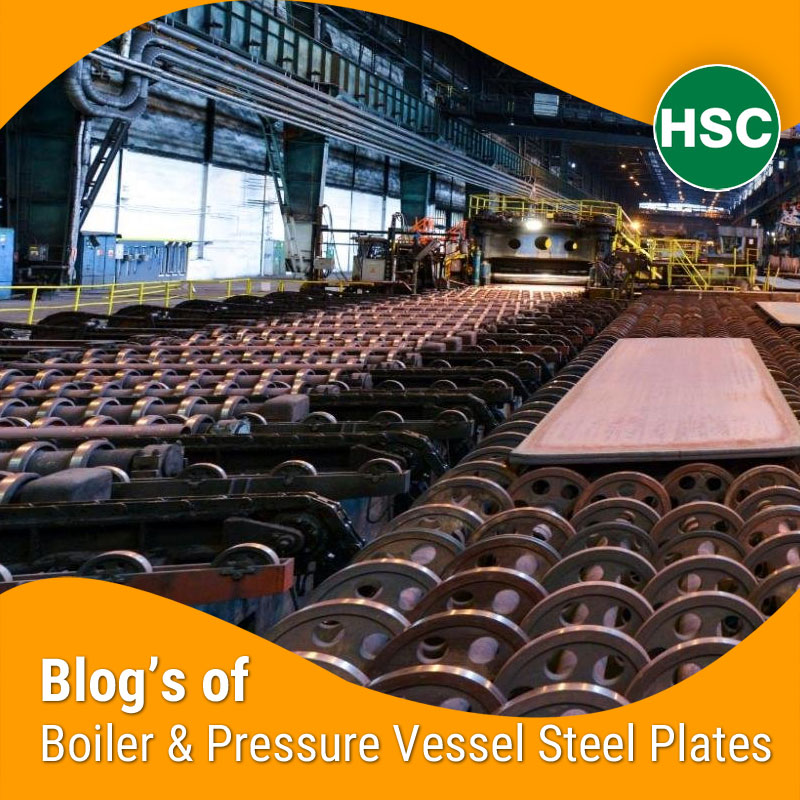How to Select Plates for Chemical Pressure Vessels?
Choosing the right steel plate for a chemical process vessel is critical to ensuring resistance to corrosion, pressure containment, and long-term durability. Materials must handle aggressive acids, solvents, gases, and elevated temperatures—often simultaneously. At Hindustan Steel Corporation, we guide buyers to the ideal plate grade based on process media, design code, and lifecycle cost.
Understanding Corrosive Environments in Chemical Industry
Chemical plants use reactors, scrubbers, separators, towers, and tanks that deal with:
- Hydrochloric, sulfuric, nitric, and phosphoric acid
- Hydrogen sulfide (H₂S)
- High-pressure gases
- Solvent vapor and steam
That’s why pressure vessels demand steel that is chemically resilient, structurally reliable, and easy to fabricate under ASME/BIS standards.
Common Grades Used in Chemical Vessels
| Plate Grade | Use Case | Corrosion Suitability |
|---|---|---|
| A516 Gr 70 | General-purpose reactors & separators | Good (with coating) |
| A387 Gr 11 / Gr 22 | Elevated temp + acidic fluid | Very Good |
| HIC Tested Plates | H₂S service / sour gas | Excellent |
| EN 10028 P265GH / P355NH | European spec vessels | Moderate |
| DIN 17155 HII / 17Mn4 | Heat exchangers, columns | Moderate |
Mechanical & Corrosion Resistance Properties
| Property | A516 Gr 70 | A387 Gr 11/22 | HIC Tested |
|---|---|---|---|
| Yield Strength | 260–285 MPa | 275–310 MPa | 260–310 MPa |
| Corrosion Resistance | Basic | Enhanced (Cr-Mo) | High (H₂S) |
| Max Temp | ~450°C | ~600°C | ~450°C |
| Cost | Economical | Premium | Slightly higher |
When Do You Need HIC-Resistant Plates?
If your chemical vessel handles:
- Sour gas, acidic condensates, or wet H₂S
- High-risk pressure fluctuation + aggressive chemical mix
- Long-term exposure to acid vapors in a pressurized chamber
Then HIC-tested boiler plates (SA516 HIC, NACE tested) are the safest choice
ASME, IBR, and NACE Compliance Required?
We offer pressure vessel plates that are:
- ASME SA516 / SA387 certified
- NACE TM0284 compliant for sour gas
- IBR Form IIIA ready for Indian manufacturing
- EN 10204 3.1 / 3.2 test certificate supported
Coated vs. Alloy Plates – Which to Choose?
- Use A516 + internal rubber/FRP coating if cost is a concern and media is manageable
- Choose A387 or HIC-tested alloy plates if exposure is continuous, temperature is high, or internal cladding isn’t feasible
Why Choose Hindustan Steel Corporation?
- Decades of experience supplying reactor-grade steel to chemical, fertilizer, and petrochemical plants
- Cut-to-size, HIC-tested, ultrasonic-tested (UT), and CE-certified plates
- Inventory from 6 mm to 150 mm thick
- Immediate supply for custom thickness and project-ready lots
Popular Grades We Supply for Chemical Plants
- SA516 Gr 70 HIC Tested
- SA387 Gr 11 / Gr 22 Cl 2
- DIN 17155 HII / 17Mn4
- EN 10028 P265GH / P355NH
- Indian alternatives with ISO + IBR + PED certifications
Export-Focused Plate Supply
We export pressure vessel plates for chemical industry clients in:
🔹 UAE, Oman, Saudi Arabia
🔹 Vietnam, South Africa, Egypt
🔹 With 100% traceability, test reports, and project tagging
FAQs for Selecting Plates for Chemical Pressure Vessels
Which plate is best for acid-resistant pressure vessels?
HIC-tested or Chrome-Moly (A387 Gr 11/22) plates are best for acid resistance.
Is A516 Gr 70 enough for chemical vessels?
Only when used with internal lining/coating; otherwise, choose a more resistant alloy.
Can HIC-tested plates resist H₂S and sour service?
Yes, they are specially tested for hydrogen-induced cracking in sour environments.
Which Indian standard plates match A387 Gr 11?
IS 2041 and IS 2002 with added Cr-Mo are nearest equivalents.
Do you provide CE and IBR certified plates?
Yes, all plates can be supplied with CE stamping, EN 10204 3.1/3.2, and IBR Form IIIA.

